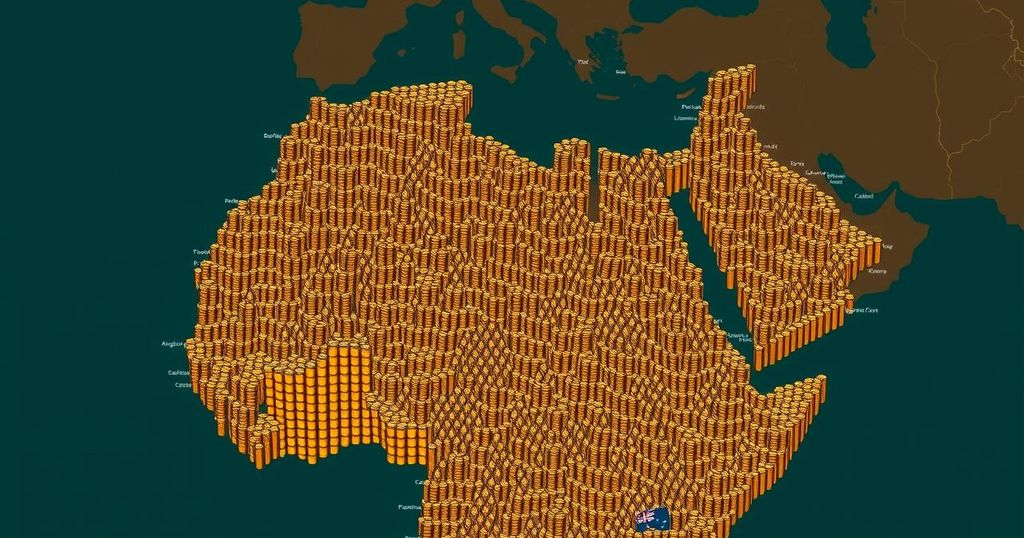The economy of Benin has historically been dependent on external support, confronting corruption and stagnation despite attempts at restructuring. Agriculture remains pivotal, employing 70% of the workforce and contributing to exports alongside resources like oil and minerals. Trade, centered around agricultural products, faces challenges due to informal trade routes, while infrastructure limits growth. Though privatization efforts have emerged, a consistent path toward economic stability is still in development.
The economy of Benin has relied heavily on external support since gaining independence, primarily from France and various international organizations. This assistance has softened the impact of significant economic stagnation, affecting the majority of the population’s standard of living. Following a coup in 1972, the government attempted to nationalize many sectors and establish ties with socialist states, yet corruption and inefficiency persisted through the 1980s. Attempts at liberalization during this period did not yield the desired results, prompting a shift towards privatization in the 1990s.
Benin has several natural resources, including timber from remaining tropical forests, fish-rich rivers and lagoons, and various minerals such as iron ore, limestone, and offshore oil discovered in 1968. Agriculture remains a cornerstone of the economy, employing approximately 70% of the workforce, with an emphasis on crops such as yams, cassava, and cotton. Fishing also plays a crucial role, with significant exports to neighboring countries.
The industrial sector is characterized by palm oil processing, cement production, and other manufacturing activities. While electricity generation is largely thermal, efforts have been made to enhance power supply through regional partnerships, including hydroelectric ventures.
Financial reforms have led to the privatization of state banks, fostering the development of private banking. Trade largely depends on agricultural exports, while significant informal trade with Nigeria impacts the overall economic balance. Benin’s strategic port at Cotonou serves as a vital trade outlet but remains underutilized. Transportation infrastructure remains limited, with a mix of paved and unpaved roads and railways linking major regions and international airports facilitating trade.
In conclusion, Benin’s economy shows a complex interplay of agriculture reliance, mineral resources, and efforts at privatization and economic liberalization. Despite faced challenges including corruption and underdeveloped infrastructure, the nation continues to seek pathways for growth and economic improvement, leveraging its strategic location and resources.
Benin, a West African nation, has a rich cultural and historical backdrop, having transitioned through various economic phases, especially after gaining independence from colonial rule. Post-independence, the country faced economic struggles characterized by reliance on external aid, mainly from France. Various governmental attempts to reshape the economy—starting from socialist-inspired policies to purging remnants of Marxism—highlight the ongoing challenge of achieving economic stability and growth. The combination of agriculture, natural resources, and strategic trade routes serves as the backbone of this nation’s economic landscape.
In summary, Benin’s economic narrative is one marked by dependency, attempts at structural transformation, and ongoing challenges. The nation has made strides toward stabilizing its economy through diversification in agriculture, the exploitation of natural resources, and the development of its banking sector. However, issues such as corruption, underutilized trade potential, and inadequate infrastructure must be addressed to secure sustained economic growth and improved living standards for its citizens.
Original Source: www.britannica.com






